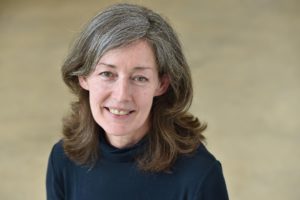Empathy In Point Clouds: Spatializing Design Ideas and Storytelling through Immersive Technologies integrates LiDAR scanning, photogrammetry, and UnReal Engine into education, expanding the possible methodologies and processes of architectural design. Entering our third year of the FEAST program, we turn our attention to storytelling and worldbuilding using site-specific point cloud models as the context for our narratives. This year the team will produce 1-2 spatial narratives for the three immersive technology platforms we are working with: VR headset, MiDEN/VR CAVE, and the LED stage.
Spatializing Design Ideas. Architecture design process has primarily relied on sketching, drawing and modeling in CAD and graphics programs. These programs provide a C-Plane as a site, devoid of visualization of the site. Spatial ideas are laid out in sketch form orthographically and very quickly move to a digital model. The digital model is then cut into vertical sections to describe the interior of the model. As a C-Plane is often not supportive of site measure or information, most projects are generated as objects without the specific measure of the site. This team has accomplished the initial workflows to import the site point cloud, generated from the LiDAR scanner, into UE. Photogrammetry documentation of physical models are created and imported into UE. VR headset provides a platform for students to study the design model in the context of the site to make informed decisions as the project develops. The VR CAVE, MiDEN, provides a platform for sharing the project for feedback from the design studio instructor and peers.
Storytelling and Worldbuilding. Upper-level studios in architecture use UE, Gaming or Filmmaking/Live Events templates to world build through constructing landscapes and/or importing site-specific point clouds from LiDAR scans. Actors and characters we will work with include physical and digital models, Metahumans, mocap, and other assets created with photogrammetry. Our goal is to produce a number of workflows for the integration of data into UE to produce 1-2 short story for proof of concept.
Meeting Details
TBD
Modality: In-person (interested in the project but unable to be on campus? Contact us to inquire!)
Photogrammetry & LiDAR Specialist (2 Students)
Preferred Skills: Skills: ArcGIS and photogrammetry experience. Interest in integrating drone imagery to terrestrial lidar models. Interest in 3D scanning (lidar and photogrammetry).
Likely Majors/Minors: ARCH, ARTDES, CE, CS, ROB, SI
3D Modeler/Fabricator (2 Students)
Preferred Skills: Proficient in one or more of the following: the woodworking, metalworking, sewing, and/or casting techniques; experience in construction, building physical prototypes (a maker).
Likely Majors/Minors: ARCH, ARTDES, MSE, THTREMUS
Videographer (2 Students)
Preferred Skills: Videography, filmmaking
Likely Majors/Minors: ARTDES, FTVM
VR Programmer (2 Students)
Preferred Skills: Familiar with UE5
Likely Majors/Minors: ARCH, CS
Faculty Project Leads
 Dawn Gilpin is Lecturer IV in Architecture at the University of Michigan, Taubman College of Architecture and Urban Planning where she teaches students methods of visualizing design ideas and spatial narratives through immersive technologies as they relate to disciplinary conventions in architecture of representation, specifically drawing and modeling. Since 2020 she has led the multidisciplinary UARTS FEAST (Faculty Engineering/Arts Students Teams): Empathy In Point Clouds. Gilpin received her M. Arch from Southern California Institute of Architecture, working in firms in Los Angeles, New York City, and Minneapolis. Gilpin’s 2016 Wallenberg Studio, “The Radical and The Preposterous: Mind the Gap”, won one of six ARCHITECT Studio Prizes. Gilpin is honored to be a multiple-year recipient of the Donna Salzer Award for Teaching Excellence.
Dawn Gilpin is Lecturer IV in Architecture at the University of Michigan, Taubman College of Architecture and Urban Planning where she teaches students methods of visualizing design ideas and spatial narratives through immersive technologies as they relate to disciplinary conventions in architecture of representation, specifically drawing and modeling. Since 2020 she has led the multidisciplinary UARTS FEAST (Faculty Engineering/Arts Students Teams): Empathy In Point Clouds. Gilpin received her M. Arch from Southern California Institute of Architecture, working in firms in Los Angeles, New York City, and Minneapolis. Gilpin’s 2016 Wallenberg Studio, “The Radical and The Preposterous: Mind the Gap”, won one of six ARCHITECT Studio Prizes. Gilpin is honored to be a multiple-year recipient of the Donna Salzer Award for Teaching Excellence.
Students: 8
Likely Majors/Minors: ARCH, ARTDES, CE, CS, FTVM, MSE, ROB, SI, THTREMUS
Meeting Details: TBD
Application: This project requires applicants to include link(s) to your portfolio, work samples, or other website(s) in the personal statement portion of your application to share work you would like considered as part of your submission.
Summer Opportunity: Summer research fellowships may be available for qualifying students.
Citizenship Requirements: This project is open to all students on campus.
IP/NDA: Students who successfully match to this project team will be required to sign an Intellectual Property (IP) Agreement prior to participation.
Course Substitutions: CoE Honors
